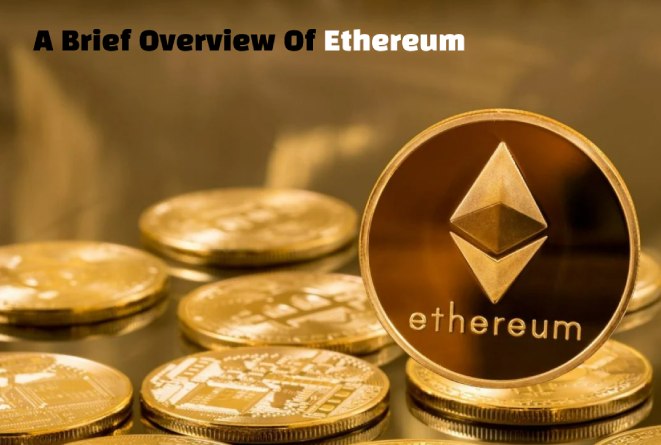Ethereum: Wall Street has recently paid a lot of attention to blockchain technology, the distributed ledger system that powers the Bitcoin digital currency. The potential for disturbance in the financial industry and beyond is growing more apparent by the day, with uses ranging from cross-border payments to over-the-counter derivatives settlements and clearing to improve back-office processes. Ethereum may be the game-changing application that finally makes this disruption possible, even though bitcoin is the most popular and well-known blockchain use case.
What is Ethereum, and why is it stimulating? The native token for Ethereum. Ether (ETH), currently trades at around $230, and the capitalization of all ether is about $25 billion, the market making it the second most valuable blockchain behind Bitcoin (which represents around $25 billion). Of $185 billion in value).
Table of Contents
Principal Benefits
Will create a blockchain called Ethereum to enable scripting, the creation of decentralized requests, and “smart contracts” using its virtual machine (EVM).
Ether (ETH), a cryptocurrency intrinsic to Ethereum, will use to purchase “gas,” or computer processing power, to execute Dapps or intelligent contracts.
On Ethereum, smart contracts can be utilis for various things, including the creation of decentralized autonomous organizations and the issuance of ICO tokens (DAOs).
A brief overview of Ethereum

Ethereum will develop to augment and improve bitcoin by expanding its capabilities. Ethereum will first propose Vitalik Buterin in 2013 and launch its first beta version in 2015. significantly. It will design to feature prominent “smart contracts”: decentralized, self-executing agreements encoded on the blockchain itself. It builds its blockchain
The ‘Ethereum Virtual Machine (EVM) can execute intelligent contracts representing financial agreements such as options, swaps. Or coupon-paying bonds. It can also manage bets and wagers, fulfill employment contracts, act as a trust deposit to purchase high-value items, and uphold a legitimate decentralized gaming facility. These are only a rare instances of the possibilities offered by smart contracts. It is exciting to think about how they can replace other types of social.Financial, and legal agreements.
Because the EVM is still developing, it costs a lot of ether to run clever contracts and has a finite amount of computing power. The system’s creators claim it is just as effective as it was in the late 1990s. However. It will probably alter when the protocol refines. It is reasonable to assume that EVM (or anything like it) can manage complex. Intelligent contracts in real-time within a few years, given that the computer aboard the Apollo 11 lander had less control than an iPhone.
Within the Ethereum network, ether exists as the internal cryptocurrency used to settle the results of intelligent contracts executed within the protocol. Ether can be mined and traded on cryptocurrency exchanges with bitcoins or fiat money such as US dollars and will use to pay for the computational effort employed by the nodes on your blockchain.
Ethereum And Decentralized Autonomous Organizations
Smart contracts can be the building blocks for entire decentralized autonomous organizations (DAO) that function like corporations. Participating in economic transactions – buying and selling things, hiring workforce, negotiating deals. Balancing budgets, and maximizing profits – without human intervention or institutional. If one considers corporations to be just a complex web of contracts and obligations of various sizes and scopes, these DAOs can will code on Ethereum.
It opens the entrance to all sorts of new and exciting possibilities. Like emancipated machines owning themselves and people will directly employ pieces of software.
Ethereum and Decentralized Applications
While DAO may be a concept that will realize in the future. Decentralized applications (Dapps) are being developed for Ethereum today. These separate applications utilize smart contracts and run on the EVM. Examples include micropayment platforms. Reputation functions, online gambling applications, schedulers, and P2P marketplaces.
The main feature of Dapps is that they work on a decentralized network and run without the need for a central authority or supervisor. Any multi-party application that relies on a central server can disintermediate through the Ethereum blockchain. Including chat, gaming, shopping, and banking.
Conclusion
What Bitcoin did for cash and payments, leveraging blockchain technology, Ethereum can do for requests of all shapes and sizes. With a built-in scripting linguistic and distributed virtual machine. It can create smart contracts to perform all kinds of functions without the need for a trusted third party or central authority.
Using their internal cryptocurrency, ether nodes will pay for their processing power when running these decentralized applications. And eventually, entire decentralized autonomous organizations can exist in an ether economy.
